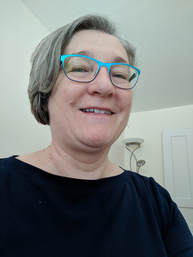 The next profile in this series features Janis Criger and offers a glimpse into the life of a "retired" lawyer. Janis also discusses her transition from working at a firm, to taking a break from law to raise her children, to becoming an entrepreneur and starting her own solo practice (and more!): 1. Tell me a little about your practice or business: I ‘retired’ from active practice in 2015. I use quotes around ‘retired’ because in 2015 I was elected as a Bencher. This was a very happy thing, as I really enjoy the work. My work now consists of Small Claims judging for two to four days monthly and being at the Law Society about five days monthly. In addition, since I don’t have a practice to tend to, I am flexibly available for Law Society Tribunal work, of which I do quite a bit. I’m really enjoying those two adjudication positions, along with the policy and governance work at the Law Society. I write reasons for a lot of the cases I sit on, so all told, I probably work 10 – 15 days monthly. Law Society reasons are published on CanLII, if anyone wants to check them out. 2. Why did you go to law school? I worked in clerical and administrative positions for about five years before I went to law school. None of them really suited my personality or allowed me to use my brain much. Law school offered the chance to learn interesting, new and complex things that I could use to solve problems for other people. It turned out to be a really good fit. 3. How did you get to where you are today? Design? Chance? Both? More chance than design, I think. For whatever reason, I am not a person who mapped out a career plan. At each turning point in my career and life, I picked the thing that I thought would allow me to use whatever skills I had to be productive and help others, while meeting my and my family’s needs. Money and recognition were side effects, both of which still surprise me. I enjoyed working as an associate at a firm but did not enjoy having someone else raise my children once they arrived. I felt I was missing all the good parts when my children were young, so I took a couple of years off, then started my own practice in my house. I worked from home for eleven years while my sons grew up. My break from law coincided with the rise of personal computing and the explosion in productivity software. I used the time off to get up to speed on technology (if you are not doing law, you still need interesting, new and complex things to learn). By the time I started my practice, I’d been out for about ten years and retained my clerical/administrative skillset. This worked out very well. On July 1, 1995, I started my sole practice with a large, custom-built desktop, a multi-function print/copy/fax, a handheld and a folding keyboard for notes on the go, and a cellphone the size of a brick. In 2007, I hired my first part-time assistant, mainly to assist with scheduling. A year or so after I started my practice, I became aware that the Hamilton Small Claims Court was looking for Deputy Judges. It wasn’t considered high status work but I thought I could serve the public and give back to the profession by doing that, so I sent a letter to my local Regional Senior Judge and got sworn in. I’ve always thought of it as important work. I’ve been sitting for almost 22 years now, and I still enjoy being on the front line of the court system, helping others solve their problems. I ran for Bencher because I thought it was a great way to contribute to the profession and the public, again in a way that suits my kind of intelligence – curiosity about complex new items. I was very pleasantly surprised to be elected, and I will run again unless something unforeseen happens. 4. What is your most significant achievement? What are you proud of? In career terms, I’m proud of having argued before the Supreme Court of Canada in Nichols v. American Home, even though I lost 7-0 there. Up to that point I’d been doing quite well, but there was a dissent at the Court of Appeal and leave was granted. I argued that case in 1990 while I was 32 weeks pregnant with my younger son. It is still cited today on the issue of an insurer’s duty to defend its insured, which causes me equal parts of chagrin and pride when I see it. I’m proud that I’m in my eighth consecutive three-year term as a Deputy Judge in the Hamilton Small Claims Court. I’ve served hundreds of self-represented litigants, assisting them in solving their disputes with neighbours, tradespersons and, sometimes, friends. I’m proud to be the face of the Canadian justice system for new Canadians who have come from places where the administration of justice is less impartial than it is here. Those litigants sometimes cry when they realize the case is being heard fairly. That’s very moving. I’m proud they trust me with their disputes. I’m proud that I managed to make practicing law balance with the other parts of my life, so that my family’s needs, my clients’ needs and my needs were all properly met over a period of thirty years. I’m flattered that my colleagues thought I’d make a good Bencher, and proud to be one. 5. What are some key challenges, and more importantly, opportunities for women in law? There are lots of challenges, both big and small. Some of the small ones are remaining unheard in meetings, being told you’re not available enough because you have children, being constantly asked ‘are you still working part-time’ when you’re putting in 40 hours or more a week at your home office. Then there are big challenges: balancing life and law, running or overseeing a business (actually very different from practicing law), keeping everything organized, avoiding burnout. There are, however, significant opportunities and rewards. Lots of people can identify problems; fewer people can solve problems. If you made it through law school and were called to the Bar, chances are you can solve problems. That’s a valuable skill in any setting. Which setting you choose is limited only by your imagination. A law degree and a call to the Bar also open doors in the corporate (for profit, not for profit and charities) and political worlds, where you can drive social change for the better. People listen to lawyers. 6. What advice would you give a woman starting her legal career? Spend some years with a mentor/employer, even if your preference is sole practice. You need to learn the ropes before you go out on your own. If you are going out on your own, develop a business plan. Work out how much it will cost you, per hour, to practice law. Divide your projected overhead by one-half of the hours you believe you’ll bill in your first five years, so that the projected cost per hour is higher than it otherwise would be. Make sure you are charging and collecting more than that for each hour you bill. It’s important to make sure you get paid and are making a profit. You can’t help others with their problems if you are consumed by your own. Make friends with your colleagues. It’s important to have people to talk to who understand this mercurial career that somehow chose all of us. The advantage of being female is you can talk business, you can talk law and you can talk babies all in the 20 minutes before court starts without feeling any sense of incongruity. Network, particularly with other women. Amplify other women every chance you get and ask that they do the same for you. Be a card-carrying member of the sisterhood and speak honestly to other women about why they need to be members too. Look after your physical health, which is the easier part. Looking after your mental health is more difficult. Law is demanding and things will happen that will upset you, knock you off-balance, make you doubt yourself and make you doubt others. Pick yourself up, dust yourself off and get back in there because, most times, people aren’t looking at you, they’re worrying about whether people are looking at them. If you come to a point where you just can’t face the day, get help right away. The M.A.P. is always there, and there are many publicly and privately funded options available to assist. -------------------------------------------------------------------------------------------------------------------------------------- Thank you Janis for agreeing to participate in this series and for providing some valuable career advice. ICYMI: Previous posts profiled May Cheng, Nicole Chrolavicius, Charlene Theodore, Dyanoosh Youssefi, Shannon Salter, Bindu Cudjoe, Elliot Spears, Jessica Prince, Anu K. Sandhu, Claire Hatcher, Esi Codjoe, Kate Dewhirst, Jennifer Taylor, Rebecca Durcan, Atrisha Lewis, Vandana Sood, Kathryn Manning, Kim Hawkins, Kyla Lee, and Eva Chan. Sign up to have these profiles sent directly to your email address and stay tuned for the next post soon! I started this blog series because I was tired of hearing about women leaving law and wanted to hear about women leading in law. The "Women Leading in Law" series focuses on good news stories and highlights amazing women succeeding in the legal profession. Each post includes the profiled lawyer's answers to six questions. Prepare to be inspired! The series will continue until December 2018.
3 Comments
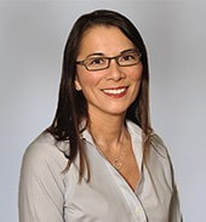 Every time I hear the next lawyer in this series, May Cheng, speak on a panel I learn a valuable nugget of career advice. And, not only is she a wonderful speaker, she truly cares about helping others. As an example: I first met May at a networking event where I briefly told her about my business. Within days she emailed me to let me know she had passed along my name to another lawyer who might need our services. Word of mouth referrals are a huge component of my business. I truly appreciated her taking the time out of her busy day to pick up the phone / send that email on my behalf. She didn't have to, but she did. Read on to learn about May's legal career and some more of her helpful career advice: 1. Tell me a little about your practice or business. I am a Certified Specialist in Intellectual Property (Trademark & Copyright) Law, and I have been practising for 25 years in Toronto. I have a specialty practice in anti-counterfeiting, doing Anton Piller Orders for luxury brands, but I also do the full range of branding advice and enforcement work. I have done a lot of injunctions in patent and trademark cases and a variety of infringement litigation in copyright, patent and trademark cases. What I enjoy most about my practice these days is the variety of work, including: deal support, licensing and litigation. It makes for a full work day that is not too predictable and never gets tiresome. Clients make it interesting, since I get to work with local emerging companies and established multinationals from around the world. 2. Why did you go to law school? I graduated with a BA in Political Science and Law, with no real aspirations to become a lawyer. At the time, I was living in Ottawa and started to work as a client services representative for Rent Review Services. Every day, I told landlords and tenants what their rights were under the law, and I felt like I was handing them a gun. It was empowering for tenants to learn that they were entitled to receive notice, for instance, because the landlord wanted to enter to inspect or do a repair. I also had to repeat, about 30 times a day, that I was not able to give legal advice, but I could only tell them what the legislation said. By the end of a couple of months, I had decided “Damn it, I want to give legal advice!”. I planned to work for the underdog and empower people, possibly at a legal clinic. However, I ended up working at big law and representing luxury brand owners. I do still get involved in lots of pro bono causes and feel good projects, including charitable fundraising, but I do it on my spare time. 3. How did you get to where you are today? Design? Chance? Both? I would have to say a lot of luck, but I certainly worked hard for it. Opportunities were given to me because I had an aptitude for certain types of work and I really immersed myself in my work. I also had some great mentors give me advice along the way, and I managed to try lots of different types of law as a young lawyer, which allowed me to figure out what I liked and what I could not tolerate. I love my work, so obviously I made some good choices along the way. 4. What is your most significant achievement? What are you proud of? Most recently, I rewrote the intellectual property laws for The Bahamas to make them TRIPS compliant as they want to accede to the WTO. This is possibly the coolest project I have ever done in terms of legacy work. I was in The Bahamas in late January for the public consultation workshops to present the legislation, which was a really special moment for me. It didn’t hurt that it was sunny and warm! The other accomplishment I am especially proud of is having made a successful move about 18 months ago to Osler. I had been at Fasken for 17 years and it was daunting to make a move, but it has gone well beyond my expectations. Women tend to be risk adverse and loyal, but that doesn’t translate to being well treated. No wonder we have a glass ceiling (not just in law) and studies confirming that second year lawyers who are women are already paid less than their male counterparts. Many women are discouraged from making moves in law because they think it will be the same everywhere. I would like to say that is not my experience, firms are different culturally, and I think I have really found an amazing place to work. Hopefully that’s true well beyond the honeymoon phase of my move! 5. What are some key challenges, and more importantly, opportunities for women in law? There have never been more opportunities for women lawyers, but the challenges remain. How to balance all the demands on your time and manage your stress and workload - those challenges are faced by all men and women in the legal profession. Add to that for women, how to be treated fairly and taken seriously, and how to get the best opportunities. Fortunately, law firms are under huge pressure from clients these days to put forward a diverse team of qualified lawyers to represent their interests, and not just a gaggle of white men. For the women in private practice who have stuck it out, there are huge opportunities to get work from companies who are demanding diversity in their outside counsel, and job opportunities both in house and at larger firms. In a shrinking and mature legal market, firms are pulling out all the stops to gain competitive advantage, which includes having a diverse team. Women need to make sure they build their own books of business, build their profiles and don’t shy away from responsibility and promotions. Women do make great rainmakers, since business development is really just about building relationships, which women are naturally adept at. 6. What advice would you give a woman starting her legal career? The legal workplace is undergoing a paradigm shift, but you can be part of the winners’ circle if you are not afraid to apply yourself and look for opportunities for promotion. Nothing comes easy, but it’s worth the effort. What’s interesting to me is that the new generation of young lawyers are doing things their way more than ever, and are redefining success in the process. Success is not just the partner role in the corner office, it can be leaving big law to start your own firm working from home, or going in house with a start-up. Law degrees are becoming more of a calling card for a broader range of professional careers than ever before. Find what you love and go after it. And don’t let anyone tell you what you’re worth! ---------------------------------------------------------------------------------------------------------------------------------- Thanks May for participating in this series and congratulations on your recent Lexpert Zenith Award! ICYMI: Previous posts profiled Nicole Chrolavicius, Charlene Theodore, Dyanoosh Youssefi, Shannon Salter, Bindu Cudjoe, Elliot Spears, Jessica Prince, Anu K. Sandhu, Claire Hatcher, Esi Codjoe, Kate Dewhirst, Jennifer Taylor, Rebecca Durcan, Atrisha Lewis, Vandana Sood, Kathryn Manning, Kim Hawkins, Kyla Lee, and Eva Chan. Sign up to have these profiles sent directly to your email address and stay tuned for the next post soon! I started this blog series because I was tired of hearing about women leaving law and wanted to hear about women leading in law. The "Women Leading in Law" series focuses on good news stories and highlights amazing women succeeding in the legal profession. Each post includes the profiled lawyer's answers to six questions. Prepare to be inspired! The series will continue until December 2018. |
Erin C. Cowling is a former freelance lawyer, entrepreneur, business and career consultant, speaker, writer and CEO and Founder of Flex Legal Network Inc., a network of freelance lawyers.
Categories
All
Archives
December 2022
|
|
(C) 2014-2024 Cowling Legal. All rights reserved.
|
Please note I am not currently practicing law.
Information on this website does not constitute legal advice and is for informational purposes only. Accessing or using this website does not create a solicitor-client relationship. See website Terms of Use/Privacy Policy. info@cowlinglegal.com
3080 Yonge Street, Suite 6060 Toronto,ON M4N 3N1 (appointment only) |
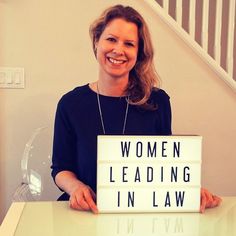
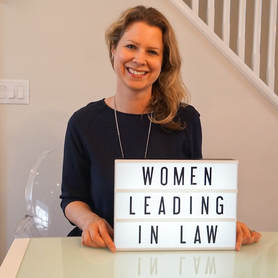
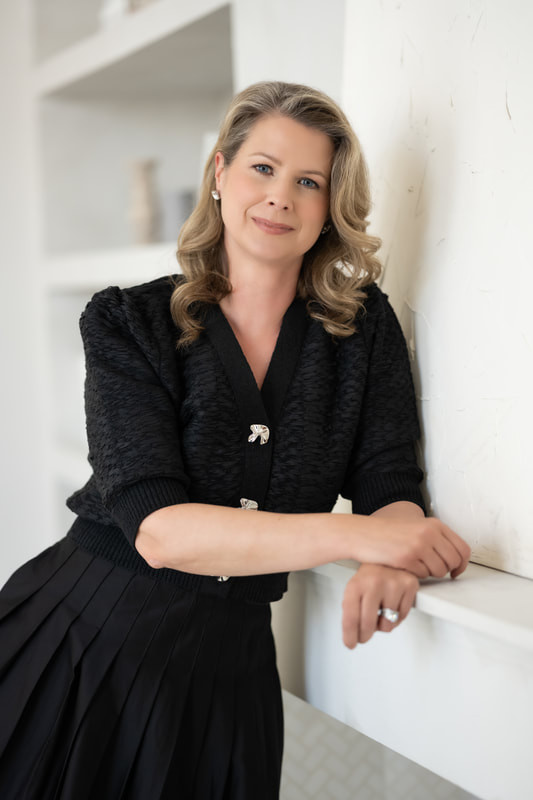





 RSS Feed
RSS Feed
